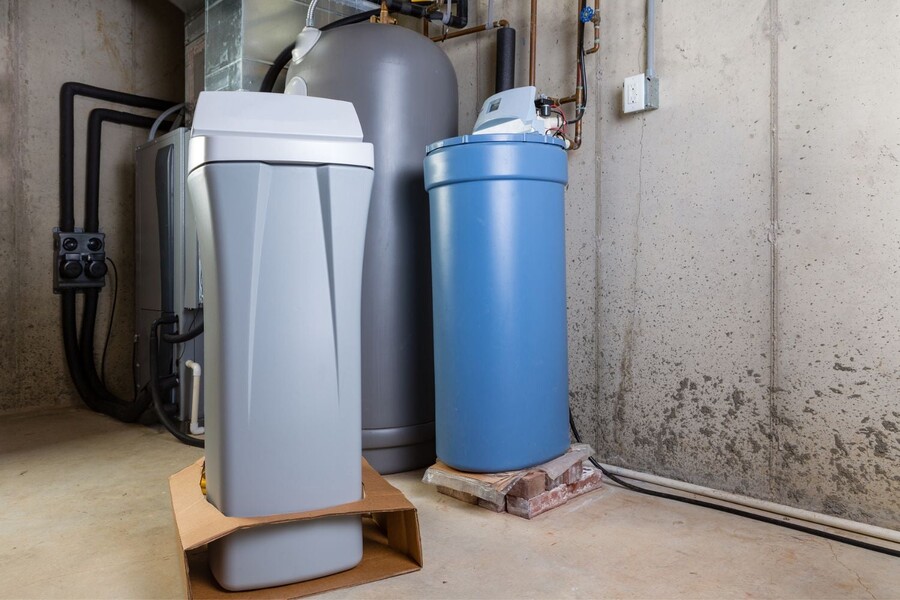In today’s world, where the quality of water varies greatly from one location to another, having access to clean and soft water is a top priority for many homeowners. If you’re tired of dealing with the negative effects of hard water, such as scale buildup, dry skin, and dull-looking dishes, it might be time to consider investing in a water softener system. But with so many options available on the market, how do you choose the right one for your needs? This comprehensive guide will walk you through everything you need to know about selecting the perfect water softener system for your home.
Are you tired of dealing with limescale buildup, dry skin, and dull laundry? A water softener system might just be the solution you’re looking for. But with so many options available on the market, how do you choose the right one for your needs? In this comprehensive guide, we’ll walk you through everything you need to know about selecting the perfect water softener system for your home.
Introduction
Hard water can wreak havoc on your plumbing, appliances, and overall comfort at home. But fear not, as a water softener system can come to the rescue. This guide aims to simplify the process of selecting the perfect water softener system that fits your specific requirements.
How Does a Water Softener Work?
Water softeners utilize an ion exchange process to replace calcium and magnesium ions with sodium ions. During the regeneration cycle, the resin beads are cleaned with a brine solution, ensuring the system’s continued effectiveness.
Types of Water Softeners
There are different types of water softeners available, including salt-based, salt-free, and dual-tank options. Salt-based systems are highly effective but require salt replenishment, while salt-free systems are maintenance-friendly and eco-friendly.
Factors to Consider When Choosing a Water Softener
Several factors come into play when selecting a water softener. Your water’s hardness levels, household water usage, system size, regeneration process, and installation/maintenance requirements should all influence your decision.
Salt-Based vs. Salt-Free Water Softeners
Salt-based water softeners provide thorough softening, but salt-free systems offer a more natural approach without removing minerals. Choosing between them depends on your preferences and priorities.
Selecting the Right Size
To ensure your water softener meets your needs, calculate your household’s water usage and choose a system with an appropriate capacity. Oversized systems waste resources, while undersized ones compromise efficiency.
Regeneration Process and Frequency
Regeneration is crucial for maintaining your water softener’s performance. Time-initiated regeneration occurs on a set schedule, while demand-initiated regeneration triggers based on actual water usage.
Installation and Maintenance
Decide between professional installation and a DIY approach based on your comfort level with plumbing tasks. Regular maintenance, such as adding salt or cleaning resin tanks, keeps your system running smoothly.
Top Brands and Models
Researching popular brands and models helps you narrow down options. Reading reviews and considering ratings from other customers provides valuable insights into real-world performance.
Understanding Hard Water and Its Effects
Before diving into water softener options, it’s crucial to understand what hard water is and the various issues it can cause. Hard water contains high levels of minerals like calcium and magnesium, which can lead to scale buildup, clogged pipes, and reduced cleaning efficiency.
Benefits of Using a Water Softener System
Investing in a water softener system offers a multitude of benefits, from extending the lifespan of your appliances to enjoying softer hair and skin. Additionally, your dishes and glassware will sparkle like never before.
Types of Water Softeners
When it comes to water softeners, there are several types to choose from, each with its own set of advantages. Salt-based water softeners use ion exchange to remove minerals, while salt-free options use a template-assisted crystallization process.
Salt-Based Water Softeners
These systems are highly effective at removing minerals, resulting in noticeably softer water. However, they require regular salt refills and produce brine waste.
Salt-Free Water Softeners
Salt-free systems are eco-friendly and maintenance-free. They don’t actually remove minerals but transform them to prevent scale buildup.
Dual-Tank Water Softeners
Ideal for larger households, dual-tank systems ensure a continuous supply of soft water even during the regeneration process.
Determining Your Water Softening Needs
To choose the right system, you must assess your specific needs through water hardness testing and water consumption evaluation.
Water Hardness Testing
Understanding the hardness of your water will guide you in selecting a system with the appropriate grain capacity.
Water Consumption Assessment
Calculate your daily water usage to determine the regeneration frequency and capacity required for your household.
Key Features to Consider
When comparing different water softener models, consider essential features like grain capacity, regeneration process, size requirements, and water efficiency.
Grain Capacity
Choose a system with sufficient grain capacity to handle your household’s water usage and hardness level effectively.
Regeneration Process
Understand the regeneration process of each system – automatic, metered, or manual – and choose the one that aligns with your preferences.
Size and Space Requirements
Ensure the chosen system fits comfortably in the available space without causing disruptions.
Water and Salt Efficiency
Opt for a system that balances water and salt efficiency to minimize waste and operational costs.
Installation and Maintenance
The installation and maintenance of your water softener system play a vital role in its long-term performance.
DIY vs. Professional Installation
Decide whether to install the system yourself or hire a professional. DIY projects can save money, but professional installation guarantees optimal performance.
Maintenance Requirements
Regular maintenance, including cleaning the brine tank and adding salt as needed, will keep your system running smoothly.
Comparing Top Water Softener Brands
Explore popular water softener brands and compare their features, performance, and customer reviews.
Brand A
Highlight the key features, benefits, and any unique technologies offered by Brand A.
Brand B
Discuss the advantages and disadvantages of Brand B’s water softener systems.
Brand C
Analyze the customer satisfaction and long-term reliability of Brand C’s products.
Reading Customer Reviews and Seeking Recommendations
Customer reviews provide real-world insights into the performance and satisfaction levels of different water softener systems. Additionally, seek recommendations from friends and family.
Cost Considerations and Budgeting
Understand the upfront costs, ongoing maintenance expenses, and potential long-term savings when budgeting for a water softener system.
Making Your Final Decision
With a wealth of information at your disposal, you’re now equipped to make an informed decision that aligns with your water softening needs and budget.
Conclusion
Investing in the right water softener system can transform your daily life by providing you with soft, clean water that enhances your well-being and preserves the condition of your home and appliances. Take the time to research and compare options to ensure you select a system that meets your unique requirements.
FAQs
- Can I install a water softener system myself?
While DIY installation is possible, professional installation ensures optimal performance and longevity.
- Do salt-free water softeners require maintenance?
Salt-free systems are virtually maintenance-free, making them a convenient choice.
- Are dual-tank water softeners worth the investment?
Dual-tank systems are ideal for larger households, offering continuous soft water supply even during regeneration.
- What is the lifespan of a water softener system?
The lifespan varies but can extend to 10-20 years with proper maintenance.
- How do I know if my water is hard?
You can test water hardness using DIY kits or by requesting a water analysis from a professional.




